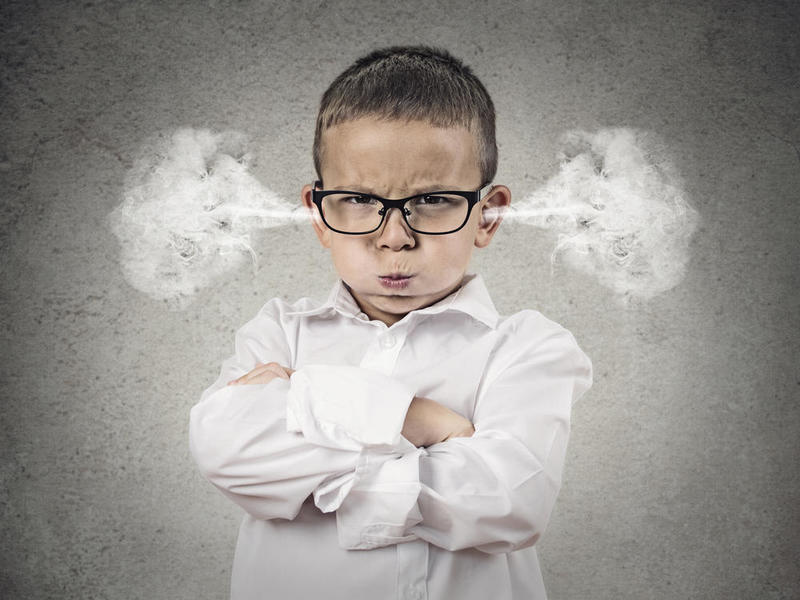 Nov 14, 2024
Nov 14, 2024


الشعب البحري - قطعة 8 - شارع 25 - مطعم شلاويط - مبنى دانا بلازا - الطابق الثاني

 Jun 23, 2019
Jun 23, 2019
تمر مرحلة الطفولة، وخاصة من عمر 18 شهرًا حتى 3 سنوات، بتطورات كبيرة تؤثر على سلوك الطفل وانفعالاته، ومنها الغضب والانفجارات العاطفية. رغم أنها مرحلة ممتعة، إلا أنها تمثل تحديًا كبيرًا للآباء والأمهات، ويجب فهم أسباب هذه "الثورات" للتعامل معها بحكمة.
في هذه المرحلة، يمر الطفل بعدة تطورات نفسية وعقلية:
يبدأ في إدراك نفسه كشخص مستقل عن والديه.
يسعى لإثبات ذاته، فيقول "لا!" كثيرًا لأنه يحاول التعبير عن إرادته.
التحكم الذاتي محدود جدًا، فهو لا يستطيع الانتظار أو المشاركة أو فهم الأدوار بسهولة.
اللغة لا تزال محدودة، ما يجعله غير قادر على التعبير عن مشاعره بالكلمات، فيلجأ للعنف أو الصراخ أو السلوك العدواني.
الدماغ لا يزال في طور النمو، خصوصًا المناطق المسؤولة عن التحكم في المشاعر والسلوك.
كل هذه العوامل تجعل من الطبيعي أن يُظهر الطفل نوبات غضب قوية في هذه المرحلة.
هل هو جائع؟
هل يشعر بالتعب؟
هل هو محاط بأشخاص أو أماكن جديدة؟
هل تم تغيير الروتين فجأة؟
معرفة السبب تُسهل كثيرًا من عملية التهدئة والوقاية مستقبلًا.
"بعد خمس دقائق هنلبس الحذاء ونمشي… تحب تلبس أي حذاء؟"
إعطاؤه فرصة للاختيار يمنحه إحساسًا بالتحكم.
"عارف إنك زعلان لأنك كنت بتلعب ومش عايز توقف… بس لازم نروح نزور تيتا."
تسمية المشاعر تساعده في فهم ما يشعر به والتعامل معه مستقبلاً.
الأطفال ينجذبون للنبرة المتفائلة، وقد تشتت غضبهم بسهولة.
إذا شعرت أنك على وشك الانفجار، خذ دقيقة لنفسك (إن كان الطفل آمنًا)، ثم عد إليه بهدوء. غضبك يزيد من توتره.
لا تصرخ أو تهين الطفل.
قل له بوضوح: "الضرب مؤذٍ، لا تضرب."
أمسك يده بلطف وضعها بجانبه، وأظهر له جسديًا أن هذا السلوك غير مقبول.
إذا قلت له: "لا، لا يمكنك اللعب بهذا الشيء"، فلا تسمح له به بعد دقائق، حتى لا يتعلم أن البكاء أو الصراخ يغيّر قراراتك.
إذا كان يعبث بطعامه، قل له: "هذا الأكل مش للعب، بس هجيبلك معجون تلعب بيه بعد شوية."
أحيانًا يحتاج الطفل فقط لتفريغ مشاعره. لا تمنعه ولا توبّخه. دعه يعبّر.
قد يكون التعبير عن الغضب مجرد طلب غير مباشر للاهتمام أو الاحتواء.
خذ بيده إلى مكان هادئ، تحدث معه بهدوء، وقد يكون هذا كافيًا لتهدئته.
عندما يكبر قليلًا، ابدأ بتعليمه مهارات مثل: أخذ نفس عميق، العد حتى 5، أو التعبير بالكلمات مثل: "أنا زعلان."
اقرأ له قصصًا عن المشاعر، وشجعه على التحدث عما يشعر به.
ثورات الغضب جزء طبيعي من نمو الطفل.
لا تعني أن طفلك "عنيد" أو "سيء".
استجابتك الهادئة والواثقة هي التي تصنع الفرق.
كل لحظة غضب هي فرصة للتعليم والتواصل، وليست مجرد تحدٍّ.
تذكّر: الطفل لا يحتاج "عقابًا" بقدر ما يحتاج من يفهمه ويقوده.
تعليقات